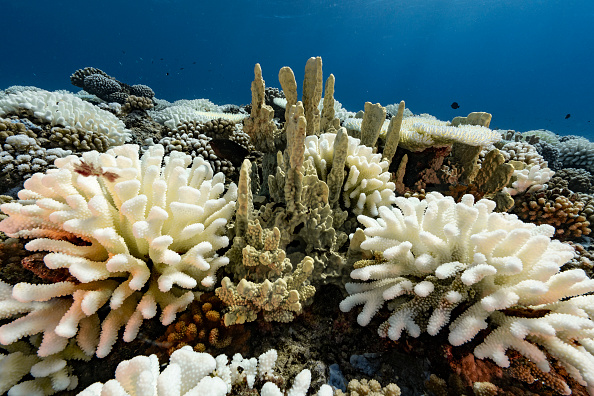New Zealand has experienced the largest sponge bleaching event ever recorded globally, with over 50 million marine sponges affected along 1,000 kilometers of the Fiordland coastline.
This event, described as the most devastating of its kind, has led to tens of millions of sponge deaths. A recent study published in Global Change Biology estimates that this 2022 bleaching event reduced the marine sponge population by nearly half, marking it as the world’s largest “sponge mortality event.”
Professor James Bell, a marine biologist at Te Herenga Waka, explained that this bleaching occurred during a prolonged marine heatwave lasting 259 days, which increased water temperatures by 4.4ºC above the average. This heatwave caused the cup-shaped sponge Cymbastella lamellata to change from their typical chocolate-brown colour to bone white. Nearly a year later, researchers found that almost 50% of sponges at the sampling sites had died.
This was not only the largest sponge bleaching event but also the biggest sponge mortality event ever documented, according to Professor Bell. Marine heatwaves, which are becoming more frequent and intense due to climate change, have significant effects on sea life. During the 2022 heatwave, more than 90% of C. lamellata sponges were bleached. These sponges are crucial to the ecosystem because they provide habitats and recycle nutrients that support marine life.
Researchers discovered that sponges are key contributors to dissolved organic carbon production in the water, a vital food source for the microbial food chain. The mass death of sponges in 2022 reduced this food source by an estimated 850 tonnes. However, some sponges showed signs of recovery, suggesting they might adapt to heat stress. Changes in the microbial communities within the sponges indicate a rapid evolutionary response to warming waters.
Professor Bell expressed cautious optimism that sponges could adapt to warming waters, but emphasized the need for further research. “We need to test this and monitor how more frequent and intense marine heatwaves may affect this vital species,” he said.













